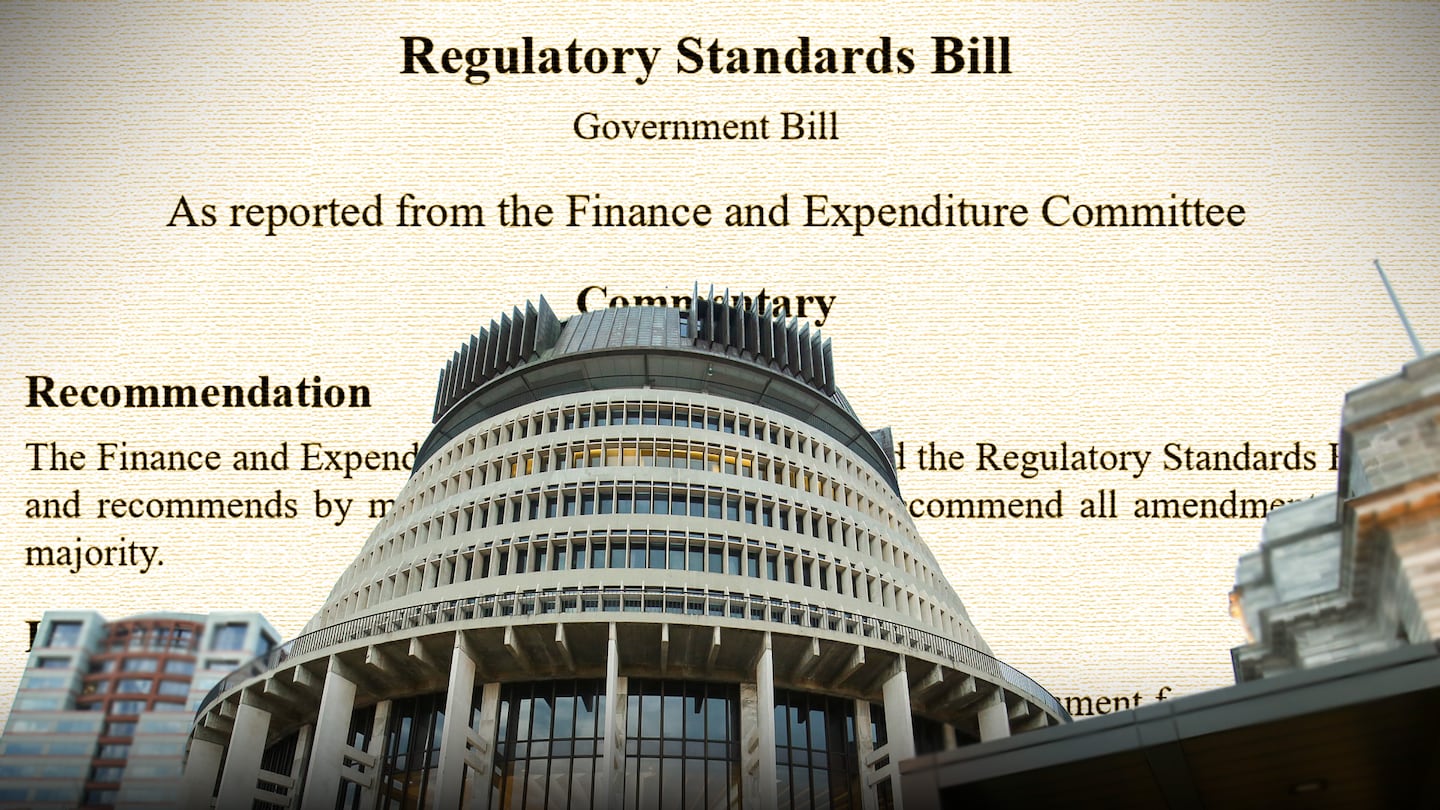The Government’s contentious Regulatory Standards Bill (RSB) has passed its third and final reading, clearing the way for a new Regulatory Standards Board to publicly review all future legislation against “good lawmaking” principles.
The bill, championed by ACT Party Leader and Minister for Regulation David Seymour, has advanced despite overwhelming public opposition, constitutional alarm from legal experts, and repeated warnings from iwi that the legislation weakens the status of Te Tiriti o Waitangi.
More than 156,000 people signed a petition opposing the bill, and nearly 99 percent of submissions to the select committee rejected it.
The Regulatory Standards Bill is the latest in a long line of similar proposals advanced by ACT over nearly two decades, with previous versions introduced in 2006 and again in 2011 under the banner of “regulatory responsibility”.
Each earlier attempt stalled amid strong public, legal and political pushback, but the policy has remained a core ACT project throughout that period.
Government defends move as “transparency” measure
Seymour, who has driven the bill for more than a decade, reiterated in the final debate that the legislation protects individuals from the costs of collective policy ambitions.
“People say that this bill should have amongst its principles things such as equity, or upholding Te Tiriti, or public health or environmental custodianship,” he told the House.
“The misunderstanding is that any government can still pursue those collective goals. The point of the Regulatory Standards Act and its principles is to identify the costs of those laws and those collective projects on individuals.
“If you want to identify a significant natural area on someone’s farm, you can. But if the rest of the community really believes it’s that valuable, perhaps they should be prepared to compensate that farmer rather than make them bear all the cost for a collective goal and do so without even acknowledging the cost.” he said.
National and New Zealand First voted with ACT to pass the bill, despite earlier signals from NZ First leader Winston Peters and Shane Jones that amendments might be needed to meet “good governance” standards.
Opposition: “A cockroach, it just won’t die”
Green Party MP Tamatha Paul delivered one of the strongest denunciations of the final debate, saying the bill represents a long-running ideological project repeatedly rejected by New Zealanders.
“They’ve tried this three times before,” she said.
“Every single time it failed. They tried it again with the Treaty Principles Bill, and what happened with that? It got thrown out at the first reading. It got chucked in the bin.
“And now it’s come before us again. It’s a cockroach, it just won’t die.” she said.
Paul said the bill advances a worldview that prioritises corporate interests over the rights of people and the environment.
“It erases Te Tiriti o Waitangi, ransacks the environment and puts corporate greed over the public good. The people who engineered this bill don’t have the range to even comprehend te ao Māori or Te Tiriti or iwi and hapū.
“They made a paste in Australia, in Canada, in America. They don’t care about us. Make no mistake, this is capitalism. And David Seymour, you better run and tell your mates in the Atlas Network that we’re gonna burn capitalism to the ground.”
Te Pāti Māori: “An arson on constitutional protections”
Te Pāti Māori co-leader Rawiri Waititi told Parliament the timing of the final reading, one year after the Government’s failed Treaty Principles Bill and during the anniversary of the Hīkoi mō Te Tiriti, is no coincidence.
“I see it for what it is, another fire,” he said.
“Not the fire of our people seeking justice, but the cold, calculated arson of a government that wants to burn down the constitutional protections that stand between our people and exploitation.
“It is no accident that this government has brought the Regulatory Standards Bill to its final reading one year after the first reading of the Treaty Principles Bill, and during the anniversary of the hīkoi mō Te Tiriti.” he said.
Waititi said Te Tiriti remains the highest constitutional standard in Aotearoa and vowed the bill would be overturned.
“Te Tiriti o Waitangi is the first and the highest regulatory standard of this land. We will repeal the Regulatory Standards Bill.
“Ahi, in all its forms, means to stand, to hope, to regenerate, to rejuvenate, to reset. It is a declaration of our occupation and our tino rangatiratanga. This bill tries to smother that ahi. Our job is to keep it burning.”
What happens next?
Once enacted, the bill will:
• Establish a Regulatory Standards Board to publicly assess every new bill and regulation.
• Review laws against principles including clarity, consistency and proportionality.
• Publish reports that could be used in courts or public debate to challenge legislation.
Supporters say the framework will improve transparency and expose poor-quality regulation.
Opponents warn it hands power to unelected appointees, creates new grounds for legal challenges and could undermine laws protecting Māori rights, environmental safeguards and social protections.
Despite its passage, constitutional lawyers, iwi, civil society groups and international bodies are now expected to scrutinise the legislation closely, setting the stage for political, legal and diplomatic pressure in the months ahead.




